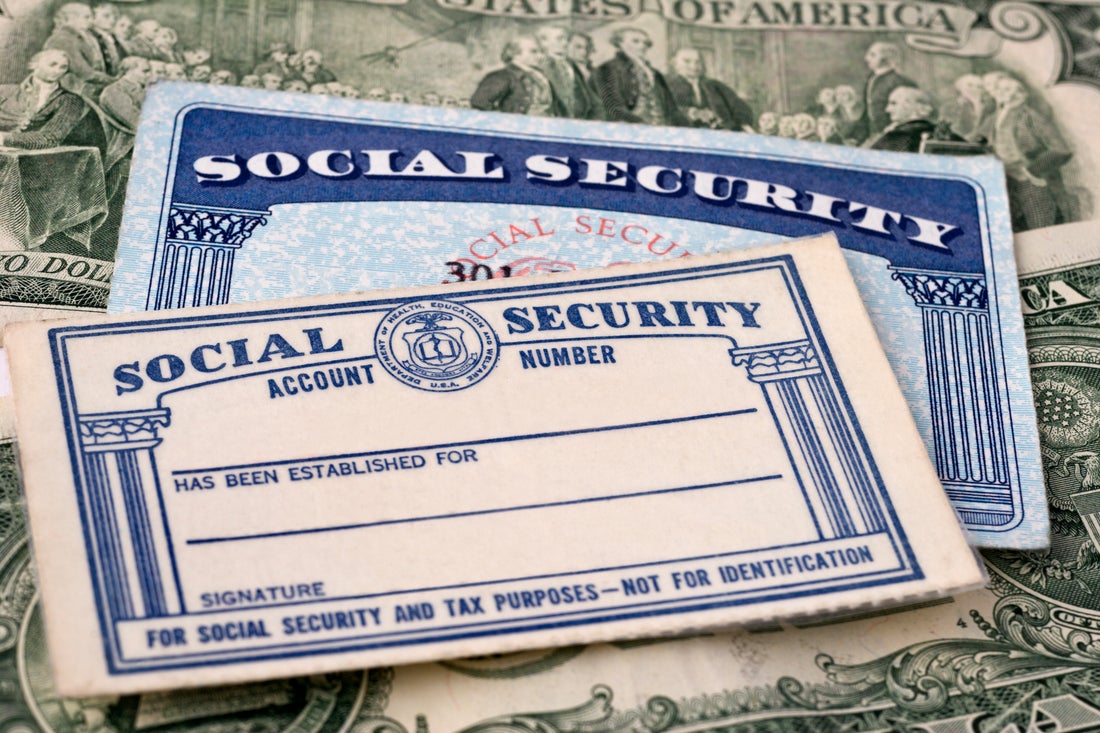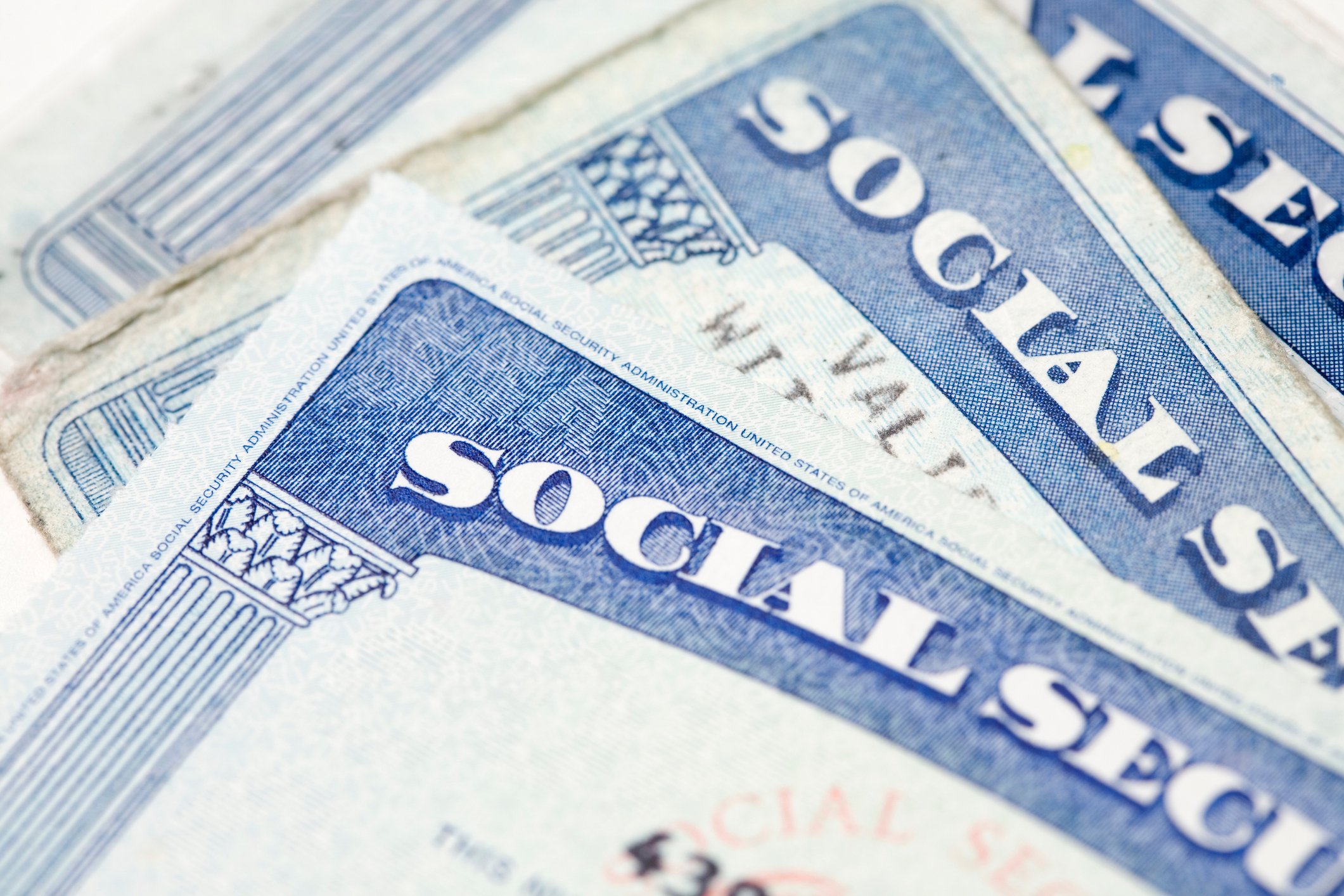Will the federal government freeze financial assistance or not? Who will be affected if it does?
Those questions have been asked many times this week after Matthew Vaeth, the Trump administration's acting director of the Office of Management and Budget (OMB), issued a memorandum on Jan. 27, mandating a "temporary pause of agency grant, loan, and other financial assistance programs."
The developments have come fast and furious with this story. Here's what we know about the federal funding freeze's effects on Social Security and Medicare so far.

Image source: Getty Images.
1. The initial memo calling for a federal funding freeze exempted Social Security and Medicare
The underlying premise behind Vaeth's memo was that all federal assistance should be aligned with President Trump's priorities. Those priorities include "focusing taxpayer dollars to advance a stronger and safer America," lowering inflation, promoting domestic energy production and manufacturing, and ending "wokeness."
To that end, Vaeth directed government agencies to initiate reviews of all federal financial assistance programs. While these reviews are being done, federal agencies were instructed to temporarily pause all financial assistance. However, there was an important footnote in the document: "Nothing in this memo should be construed to impact Medicare or Social Security benefits."
2. A subsequent White House fact sheet excluded a pause of any benefits given directly to individuals
The OMB memo quickly led to significant confusion about the extent of the federal funding freeze. On Jan. 28, the White House issued a fact sheet to answer some of the questions about the directive.
Three statements in this fact sheet addressed concerns that the funding pause would affect Social Security or Medicare in any way:
- "Any program that provides direct benefits to individuals is not subject to the pause."
- "Any payment required by law to be paid will be paid without interruption or delay."
- "Any program that provides direct benefits to Americans is explicitly excluded from the pause and exempted from this review process. In addition to Social Security and Medicare, already explicitly excluded in the guidance, mandatory programs like Medicaid and SNAP will continue without pause."
3. A federal judge issued a temporary restraining order on Tuesday
Three organizations joined together quickly to file a lawsuit against OMB to secure a temporary restraining order. The National Council of Nonprofits represents more than 30,000 nonprofit organizations. The American Public Health Association advocates for public health and has more than 23,000 individual members. Main Street Alliance represents around 30,000 small businesses in the United States. These three organizations argued that their members would be negatively affected by the OMB memo. Their lawsuit maintained that while the Trump administration is entitled to advance its priorities, it was not doing so "within the confines of the law."
On Jan. 28, U.S. District Judge Loren L. AliKhan granted the request for a temporary restraining order on the federal funding freeze. This restraining order is in effect until Feb. 3.
4. The White House rescinded the OMB memo on Wednesday
In response to Judge AliKhan's decision, the Trump administration rescinded the OMB memo on Jan. 29. White House Press Secretary Karoline Leavitt stated: "The Executive Orders issued by the President on funding reviews remain in full force and effect and will be rigorously implemented by all agencies and departments." She added, "This action should effectively end the court case and allow the government to focus on enforcing the President's orders on controlling federal spending."
5. There's still some confusion
Did the drama end with the White House's rescission of the OMB memo? Nope.
After Judge AliKhan handed down her decision, attorneys general from 22 states and the District of Columbia filed another lawsuit. This lawsuit might seem to be unnecessary in light of the White House's decision to walk back the original OMB memo. However, Leavitt posted on X, formerly known as Twitter:
This is NOT a rescission of the federal funding freeze.
-- Karoline Leavitt (@PressSec) January 29, 2025
It is simply a rescission of the OMB memo.
Why? To end any confusion created by the court's injunction.
The President's EO's on federal funding remain in full force and effect, and will be rigorously implemented.
While Leavitt said the rescission was intended to "end any confusion," her social media post caused further confusion. What isn't confusing, though, is that Social Security and Medicare shouldn't be affected regardless of how the story plays out.





